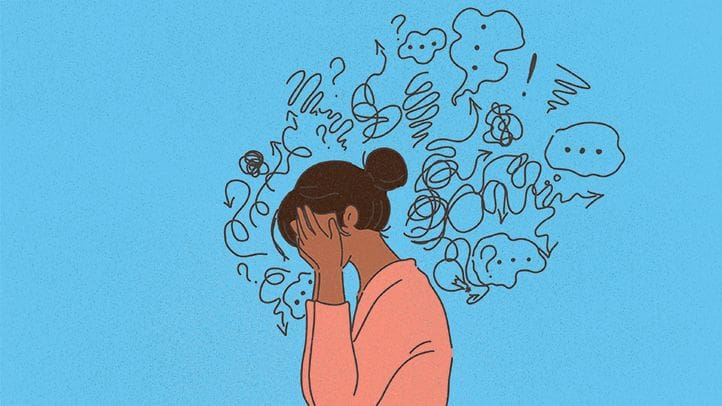Depression is a mental illness that can be debilitating for sufferers. It is characterized by low mood, feelings of hopelessness and helplessness, loss of interest in activities, and changes in sleep, appetite, and energy levels. Depression can also lead to physical symptoms such as aches and pains, fatigue, and headaches.
Important note: If you think you may be depressed, it is important to see your doctor or a mental health professional for an assessment. They will be able to rule out any other causes of your symptoms and provide you with a diagnosis.
Can you self-check for depression?
There are a number of self-assessment tools that can be used to check whether you may be depressed. These include the following:
1. The PHQ-9 is a nine-item questionnaire that is used to screen for depression. It asks about the frequency of symptoms over the past two weeks and how much they have affected your life. A score of 10 or more indicates moderate to severe depression.
2. The Zung Self-Rating Depression Scale is a 20-item questionnaire that assesses the severity of symptoms, such as feelings of sadness, loss of interest, sleep problems and fatigue. A score of 60 or more indicates severe depression.
3. The Beck Depression Inventory (BDI) is a 21-item questionnaire that assesses the severity of symptoms, such as feelings of sadness, loss of interest, sleep problems and fatigue. A score of 14 or more indicates moderate to severe depression.
4. The Geriatric Depression Scale (GDS) is a 30-item questionnaire that is used to screen for depression in older adults. It asks about the frequency of symptoms over the past week and how much they have affected your life. A score of 11 or more indicates moderate to severe depression.
If you are concerned that you may be depressed, it is important to see your doctor or a mental health professional for an assessment. They will be able to rule out any other causes of your symptoms and provide you with a diagnosis. Treatment for depression may include medication, psychological therapies, or a combination of both.
The effects of depression
The effect of depression can be far-reaching, impacting all aspects of your life. Depression can make it difficult to concentrate, remember things or make decisions. It can lead to absenteeism from work or school and can lead to social isolation. In severe cases, it can lead to suicide.
Again, it is important to stress this fact: If you are depressed, it is important to seek help. Depression is a treatable illness and there are a number of effective treatments available.
How to cure depression?
If you are depressed, it is important to seek help. Depression is a treatable illness and there are a number of effective treatments available. Treatment for depression may include medication, psychological therapies, or a combination of both.
If you think you may be depressed, it is important to see your doctor or a mental health professional for an assessment. They will be able to rule out any other causes of your symptoms and provide you with a diagnosis. Treatment for depression may include medication, psychological therapies, or a combination of both.
You can also try some self-help measures, such as exercise, relaxation techniques, or talking to a friend or family member. However, it is important to seek professional help if your symptoms are severe or if self-help measures are not working.
If you are depressed, it is important to seek help. Depression is a treatable illness and there are a number of effective treatments available. Treatment for depression may include medication, psychological therapies, or a combination of both. If you think you may be depressed, it is important to see your doctor or a mental health professional for an assessment.
Getting help from a friend
Friends and family play vital roles in ensuring that you are okay. When you are feeling down or having one of those ‘periods’, get in touch with your friends and family for support.
Summary on depression
Depression is a medical condition that negatively affects how you feel, the way you think, and how you act.
Common symptoms include feeling sad or down, loss of interest in activities you once enjoyed, sleep problems, fatigue, and difficulty concentrating and making decisions. Depression can also lead to social isolation and suicidal thoughts or behaviors.
If you are depressed, it is important to seek help. Depression is a treatable illness and there are a number of effective treatments available. Treatment for depression may include medication, psychological therapies, or a combination of both. If you think you may be depressed, it is important to see your doctor or a mental health professional for an assessment.
Friends and family play vital roles in ensuring that you are okay. When you are feeling down or having one of those ‘periods’, get in touch with your friends and family for support.
